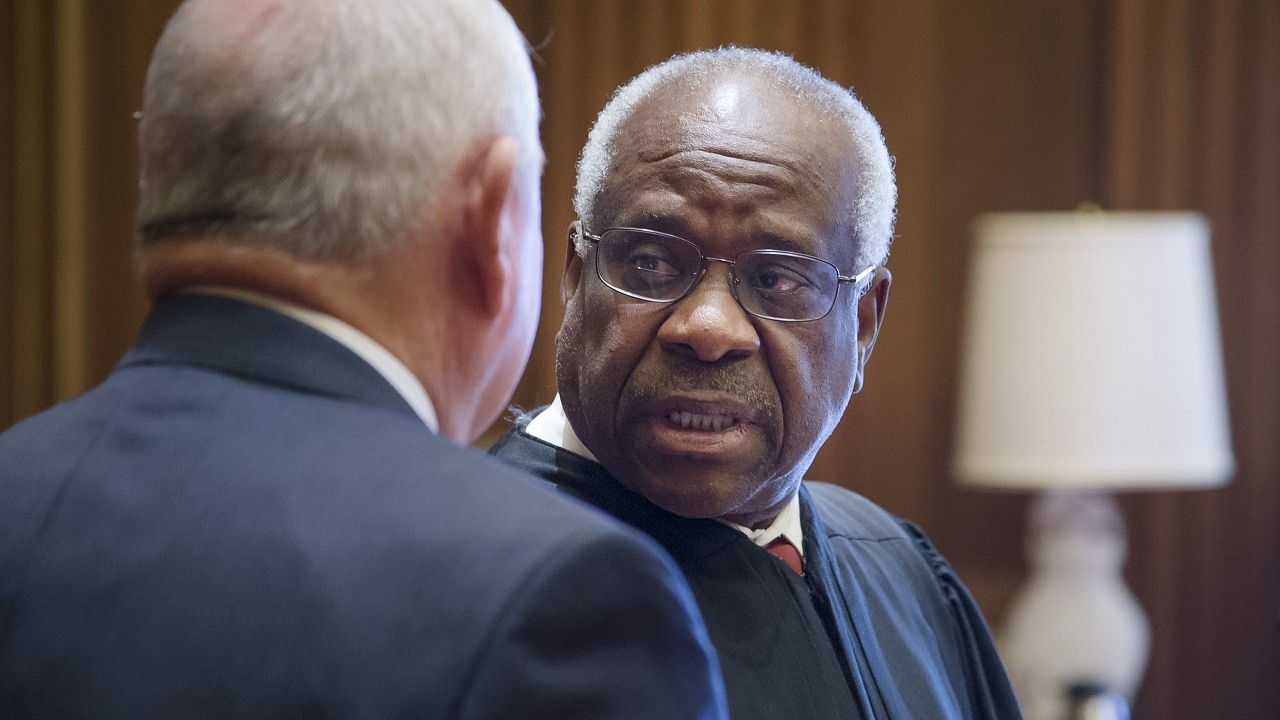Today, the Senate Judiciary Committee will hold a hearing on Supreme Court ethics reform. Why now? Probably because of the recent disclosures linking Justice Clarence Thomas to billionaire Harlan Crow’s yacht, properties, and private jet. The disclosures have sparked a discussion about the ethical responsibilities of the federal judiciary – a conversation that the Senate will now take up.
For today’s hearing, “the witnesses are not exactly household names,” POLITICO reported. Democrats will be calling people like Jeremy Fogel (former federal judge), Amand Frost (law professor), Kedric Payne (Campaign Legal Center). Republicans will be calling people like Michael B. Mukasey (former attorney general) and Thomas H. Dupree Jr. (big law boy).
Although, the Democrats did invite “two much bigger names” who “declined to appear in person but they agreed to submit written statements to the committee.”
The two bigger names? J. Michael Luttig (former federal judge) and Laurence Tribe (law professor). Here’s what they had to say.
Luttig and Tribe on SCOTUS Ethics
It’s worth pointing out that not only is Luttig conservative – but he’s friends with multiple conservative Supreme Court justices. So Luttig’s input seems to transcend partisanship.
“It is the Supreme Court’s duty to acquit itself in the discharge of its judicial responsibilities so as to continually assure and reassure the American people that its judgments are deserving of respect,” Luttig wrote, adding that justices have a duty “to conduct themselves in their non-judicial conduct and activities in such a manner that they are individually deserving of respect – indeed, beyond reproach, not only in fact, but also in appearance. This, at all times and places, in both public and in private.”
Does Congress have the power to legislate standards for SCOTUS justices? Luttig says yes, Congress “indisputably has the power” to “enact laws prescribing the ethical standards applicable to the non-judicial conduct and activities.”
Luttig concluded that if the Court does not “subject itself to the highest possible professional and ethical standards” then the Court will “depreciate” the “power to preservice, protect, and defend” the Supreme Court … and the Constitution of the United States.
Tribe, a liberal, felt similarly, although he expressed himself more harshly.
“I see no constitutional obstacle to enactment of a fully enforceable federal statute not only creating far greater transparency than the Supreme Court seems to have been willing to impose on itself but also requiring considerably more modest interactions between Justices and those who, whether to curry favor or simply to enjoy the privileges of wealth and position, wine and dine the Justices under conspicuously lavish circumstances unlikely to be enjoyed by most lower court judges or indeed by most individuals whether in public or in private life.”
Political Smear Job?
Senator Ted Cruz called the ethics hearing a “political smear job.” And while I think Congress is certainly capable of, and often in fact conducts, political smear jobs (i.e. Trump’s Russia impeachment, Hunter Biden investigation), I’m not ready to dismiss a hearing into SCOTUS ethics.
No, the Clarence Thomas-Harlan Crow relationship raises questions that are worth exploring, if not with specificity to the Thomas-Crow relationship, then with respect to SCOTUS interactions generally.
The Supreme Court is, obviously, an important institution. And that the Supreme Court consists entirely of nine individuals – none of whom are elected, all of whom share deeply similar backgrounds – makes the Court inherently undemocratic, and accordingly, deserving of intense scrutiny. Clarifying and imposing ethical standards upon the nine – and the rest of the federal judiciary – makes sense to me.
MORE: Kamala Harris Is a Disaster
MORE: Joe Biden – Headed For Impeachment?
Harrison Kass is the Senior Editor at 19FortyFive. An attorney, pilot, guitarist, and minor pro hockey player, Harrison joined the US Air Force as a Pilot Trainee but was medically discharged. Harrison holds a BA from Lake Forest College, a JD from the University of Oregon, and an MA from New York University. Harrison listens to Dokken.

